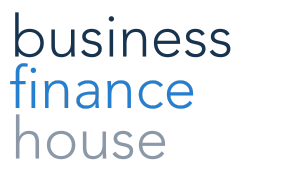Choosing the right financing option is crucial for the success and growth of any business. Two of the most popular options available to business owners are business loans and business lines of credit. Each of these financial options has its own advantages, and the best choice depends on your business’s specific needs. In this blog, we’ll break down the differences between a business loan and a business line of credit, helping you determine which option is right for your business.
Business Loans
A business loan is a traditional form of financing where a lender provides a lump sum of money that the borrower agrees to repay over a fixed period, typically with interest. Business loans are often used for large, one-time investments such as purchasing equipment, real estate, or funding major expansion projects.
How It Works:
When you apply for a business loan, the lender will evaluate your business’s financial health, credit history, and ability to repay the loan. If approved, you receive the entire loan amount upfront, and you begin repaying it according to the agreed-upon schedule, which usually includes fixed monthly payments.
Benefits of Business Loans:
- Access to a Large Sum of Money: Business loans provide substantial funds, making them ideal for significant investments that require a large upfront payment.
- Predictable Repayment Terms: With fixed interest rates and monthly payments, business loans offer predictability, making it easier to budget for the repayment.
- Lower Interest Rates: Secured business loans, which require collateral, often come with lower interest rates compared to unsecured options.
Drawbacks of Business Loans:
- Strict Qualification Requirements: Business loans typically require a strong credit history and may require collateral, making them less accessible to newer or smaller businesses.
- Less Flexibility: Once you receive the funds, you’re committed to the repayment schedule, regardless of how your business’s financial situation changes.
- Immediate Repayment: You must start repaying the loan immediately, even if you haven’t yet used all the funds.

Business Lines of Credit
A business line of credit is a more flexible financing option that gives you access to a pool of funds up to a certain limit. Unlike a business loan, you don’t receive the money upfront. Instead, you can draw on the line of credit as needed, up to the maximum limit, and only pay interest on the amount you use.
How It Works:
When you’re approved for a business line of credit, the lender sets a credit limit based on your business’s financial health and creditworthiness. You can draw from the line of credit as needed, repay what you’ve borrowed, and borrow again as long as you stay within your credit limit.
Benefits of a Business Line of Credit:
- Flexibility: A business line of credit allows you to borrow only what you need when you need it, making it ideal for managing cash flow, covering unexpected expenses, or funding short-term projects.
- Interest on Borrowed Amounts: You only pay interest on the amount you actually borrow, not the entire credit limit.
- Revolving Credit: As you repay what you’ve borrowed, the funds become available again, providing ongoing access to capital.
Drawbacks of a Business Line of Credit:
- Higher Interest Rates: Business lines of credit generally have higher interest rates than traditional business loans, especially if they are unsecured.
- Variable Interest Rates: Many lines of credit come with variable interest rates, which can fluctuate and lead to unpredictable costs.
- Discipline Required: The flexibility of a line of credit requires careful financial management to avoid over-borrowing or relying too heavily on this financing option.
Comparing Business Loans and Business Lines of Credit
When deciding between a business loan and a business line of credit, consider the following factors:
Purpose and Usage:
- Business Loans: Best suited for large, one-time expenses such as buying equipment, real estate, or funding long-term projects.
- Business Lines of Credit: Ideal for managing cash flow, covering short-term expenses, and handling emergencies or unexpected costs.
Cost Considerations:
- Business Loans: Often come with lower interest rates, making them more cost-effective for long-term financing.
- Business Lines of Credit: While offering flexibility, lines of credit may have higher interest rates and variable rates that can lead to higher costs.
Repayment Flexibility:
- Business Loans: Have fixed repayment schedules, which provide predictability but less flexibility if your financial situation changes.
- Business Lines of Credit: Offer flexible repayment terms, allowing you to repay based on your cash flow, but require careful management to avoid financial strain.
How to Decide Which is Right for Your Business
When deciding between a business loan and a business line of credit, it’s important to assess your business’s specific needs and financial situation.
- Assess Your Needs: If you need funding for a specific, one-time purchase or investment, a business loan might be the better choice. If you’re looking for flexibility to manage ongoing expenses or seasonal fluctuations in revenue, a business line of credit could be more suitable.
- Consider Cash Flow: Think about your cash flow patterns. If your business experiences regular cash flow fluctuations, a line of credit offers the flexibility to borrow when you need it and repay when you have the funds.
- Evaluate Cost: Compare the costs of each option, including interest rates, fees, and total repayment amounts. A business loan might offer lower overall costs if you can secure a fixed interest rate, while a line of credit might be more cost-effective for short-term borrowing.
- Check Eligibility: Your credit score, collateral availability, and business history will impact your eligibility for both options. If you have a strong credit score and can offer collateral, you might qualify for better terms on a business loan. If not, a business line of credit might be easier to secure.
Both business loans and business lines of credit are valuable tools for financing your business, but they serve different purposes. Business loans are ideal for large, planned expenses, while business lines of credit offer flexibility for managing cash flow and short-term needs. By carefully assessing your business’s financial situation, goals, and needs, you can choose the financing option that best supports your success.
Looking for the right financing solution to support your business growth? Contact Business Finance House today to explore tailored business finance solutions that fit your unique needs.





